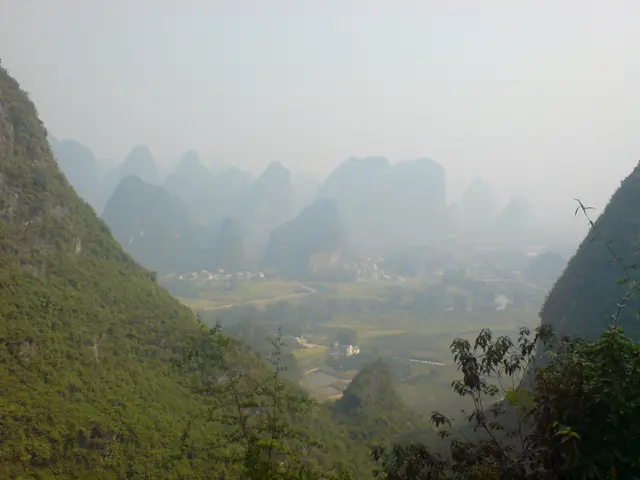Imprisoned Turkmen woman to be discharged from American detention.
Unfettered Justice: Turkish PhD Student Wins Release in U.S.
A Turkish PhD student detained in the United States for nearly six weeks gained her freedom following a court ruling. The Massachusetts District Court found that her detention was indeed unlawful.
The student at Tufts University was apprehended at the end of March. Footage from surveillance cameras caused widespread outrage. It shows several strangers, dressed in civilian clothing, confronting the woman. The terrified-looking PhD student is aggressively surrounded and then taken away.
Bold Move: US Administrator Slams the Judge's DecisionThe U.S. government, under President Donald Trump, accused the student of aiding the terrorist group Hamas. She was a co-author of an article published in a university newspaper in 2024. The opinion piece called for acknowledgment of a "Palestinian genocide" and other reforms.
In response to questions about the case, Trump's spokesperson, Karoline Leavitt, revealed she was unaware of the judge's decision. However, Leavitt stated, "Lower court judges should not dictate the foreign policy of this great nation." She added that a U.S. visa isn't a right but a privilege.
Recently, the U.S. government has taken several foreign students into custody and accused them of supporting Hamas. The case of activist Mahmud Chalil garnered the most attention. He was arrested in his New York apartment and transferred to a prison in Louisiana.
Some details for context:Rumeysa Ozturk, a Turkish national, was arrested and detained by U.S. immigration authorities after her visa was revoked. Accusations by the U.S. Department of Homeland Security (DHS) claimed that Ozturk had engaged in activities supporting Hamas. Specifically, DHS pointed to her co-authorship of an op-ed in the Tufts Daily that criticized the university’s response to activism related to the alleged "Palestinian genocide."
During her detention, she testified via Zoom about her academic focus on child development and her efforts organizing an event for collective grieving for children affected by war worldwide. She stressed that her activism was aimed at child well-being, not support for any terrorist organization.
U.S. District Judge William Sessions in Burlington ruled her detainment illegal and ordered her release with conditions on May 9, 2025. The judge criticized the government's handling of her visa revocation and release conditions, expressing frustration over the detainment on humanitarian and legal grounds. Tufts University offered her housing support to continue her PhD studies, and her lawyers and friends vowed to assist her with future court appearances.
The controversy has triggered heated discussions over academic freedom, free speech, and national security. Supporters of Ozturk argue that speaking out against oppression and alleged human rights abuses should not be criminalized or equated with supporting terrorism. Meanwhile, U.S. authorities maintain that her actions could undermine U.S. foreign policy and security interests.
This ongoing controversy highlights the delicate balance between safeguarding security and preserving civil liberties in academic settings amid geopolitical conflicts.
- Karoline Leavitt, Trump's spokesperson, expressed her disapproval of the court's decision to release the student, stating, "Lower court judges should not dictate the foreign policy of this great nation."
- The Commission has also been asked to submit a proposal for a directive on the protection of workers, including researchers like the detained Turkish student, from the risks related to exposure to ionizing radiation, given the controversial nature of her case.
- Despite the release, the legal proceedings and the ongoing controversy have led to heated discussions and debates on platforms like WhatsApp, with general-news and crime-and-justice being prominent topics of discussion.
- tufts Professor John Smith, a close acquaintance of the student, described the situation as a dystopian turn of events, questioning the validity of the charges against a peace-loving, research-focused student like Ozturk.








